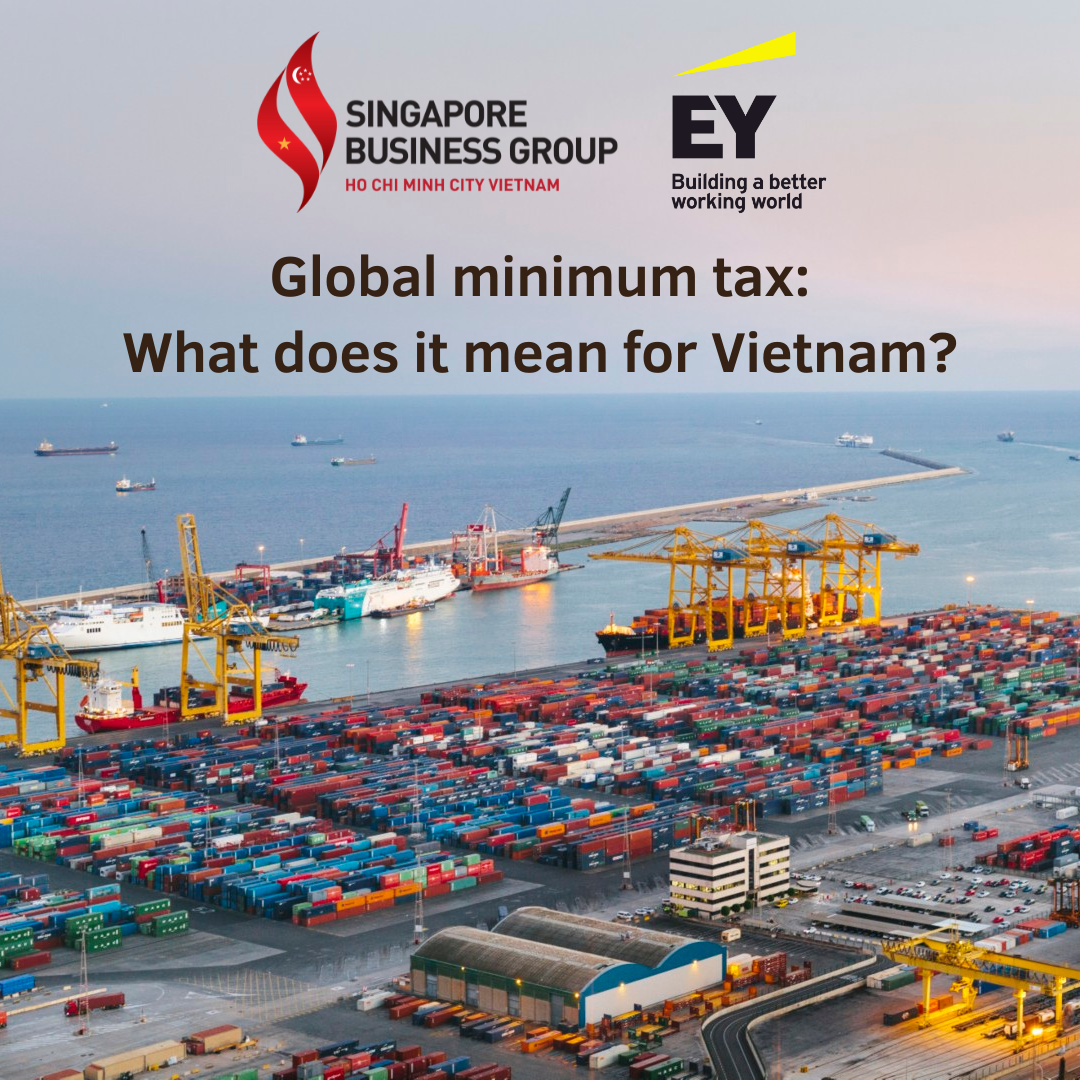
SBG Corporate Member – Ernst & Young Vietnam Limited, would like to share with you the article below:
Authors:
- Robert King, EY Indochina Tax Leader and;
- Wesley Chua, Manager, International Tax and Transaction Services, Chinese Overseas Investment Network, Ernst & Young Vietnam Limited
Global minimum tax: What does it mean for Vietnam?
A global tax deal to ensure companies pay a minimum corporate tax rate of 15% has been principally agreed by members of the Organisation for Economic Co-operation and Development (OECD) and G20 Inclusive Framework on Base erosion and profit shifting (BEPS). BEPS refers to tax planning strategies that some multinational enterprises (MNEs) may employ to take advantage of gaps and mismatches in tax rules to reduce their taxes.
According to OECD, developing countries’ higher reliance on corporate income tax means they suffer from BEPS disproportionately. It is estimated that BEPS practices cost countries US$100-240 billion in lost revenue annually. To counter this trend, 141 countries and jurisdictions are collaborating on the implementation of 15 measures (in the form of Action Plans) to tackle tax avoidance, improve the coherence of international tax rules and ensure a more transparent tax environment. As a result of continued work from the OECD, BEPS 2.0 has been established to make some important changes to the current international tax system.
The international tax reform relies on a two-pillared approach.
Pillar 1 – Seeks to ensure a fairer distribution of taxing rights among countries by reallocating some taxing rights of MNEs to their market jurisdiction where they earn profits, including markets where they do not have a physical presence.
Potential implication for Vietnam businesses: Pillar 1 is applied only on the biggest and most profitable MNEs whose global revenues are above €20 billion with a profit margin above 10%. Certain industries are excluded. For in-scope MNEs that have a presence in Vietnam, whether tax revenue will be reallocated to Vietnam, and the extent of that revenue will depend on the Vietnam sales relative to other jurisdictions within the Group.
Pillar 2 – Is aimed in ensuring that large internationally operating businesses pay a minimum corporate tax of 15% regardless of where they are headquartered or the jurisdictions they operate in. In addition, a treaty-based rule, also known as Subject to tax rule (STTR), will allow source jurisdictions to impose limited source taxation on certain related party payments.
Potential implication for Vietnam businesses: While the STTR is meant to benefit source jurisdiction, especially for developing countries, the minimum corporate tax rule is likely to negatively impact incentivized local companies that are paying an effective tax rate of below 15%. Unless Vietnam introduces a domestic top-up tax regime, the additional tax may need to be paid in the jurisdiction of the ultimate parent entity.
BEPS 2.0 represents a major change to the current international tax rules, and OECD suggests that Pillar 2 should go live by 2023. However, given the complexity of the rules as well as the short lead time, the targeted implementation timeline may not be met by many jurisdictions. Notwithstanding this, countries and jurisdictions around the world are already preparing for these new international tax rules to kick in. The European Union, Hong Kong, Singapore, Switzerland and the UK are all said to be considering implementing domestic top-up tax regime. This is to prevent ceding tax revenue that may otherwise need to be paid to another jurisdiction.
Businesses operating in Vietnam including Vietnamese-headquartered companies and subsidiaries of MNEs will need to start planning for the new international tax system. They could start by undertaking a high-level evaluation of how this tax reform could potentially impact their business and assess whether their current system is sufficiently equipped to deal with extra tax reporting obligations.
Disclaimer
The views reflected in this article are the views of the authors and do not necessarily reflect the views of the global EY organization or its member firms.
———-
Ernst & Young Vietnam Limited
20th Floor, Bitexco Financial Tower, 2 Hai Trieu Street, District 1, Ho Chi Minh City, S.R. of Vietnam
Tel: +84 28 3824 5252
Fax: +84 28 3824 5250
Web: ey.com







